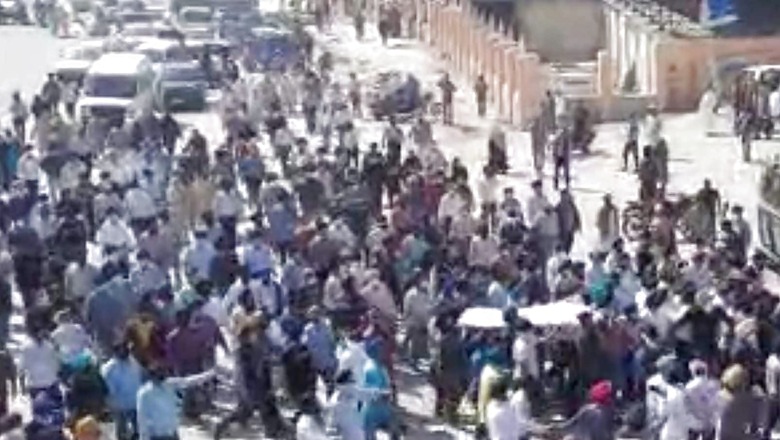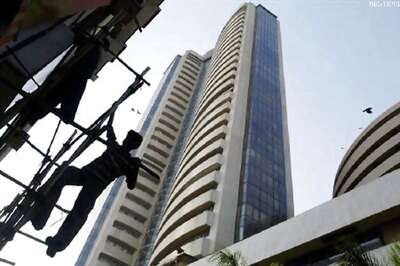
views
Last few days in Kashmir Valley have shamed the people of Kashmir in the eyes of global community due to the bloody, gruesome, cowardly and selective target killing of members of non-local migrant labour force from states like Uttar Pradesh, Bihar, West Bengal etc., who have been working hard and earning their livelihood in different parts of Kashmir Valley for the past many years. The killings, whose responsibility has been taken by a newly formed umbrella militant organization comprising former militant organizations operating in Kashmir Valley, have badly damaged an already bad image of Kashmiris as supporters of violence and bloodshed.
Kashmir Valley in any case has had an extremely negative image of hosting a religious and extremist separatist movement that is hostile to religious and ethnic minorities, regardless of the belief Kashmiri Muslims might have of Kashmir’s aspiration movement.
The majority community of Kashmir, which is still questioned over what happened to its largest religious minority of Kashmiri Hindu Pandits, has increasingly been asked more uncomfortable questions on the racist, exclusionary and radical nature of Kashmir’s separatist movement, which most political analysts view as just another violent Islamist jihadi movement, regardless of the false comforting view that Kashmiri Muslims have of their aspiration movement being a peaceful, secular and purely political movement. No one in the international community as well as among Muslim nations worldwide believes that Kashmiri Muslims are running a peaceful and secular political movement.
While the world knows what happened to Kashmiri Hindu Pandits, the fact remains that not all Muslims in Kashmir Valley have been lending their unconditional support to separatist movement as well. Kashmir’s almost 10 lakh-strong Gujjar and Bakarwal community, which is also a Muslim community, has never wholeheartedly been with Kashmir’s separatist movement because of racism and ethnic hatred that people of Kashmir historically have had against Gujjars and Bakarwals. Within Kashmir Valley itself, a large number of Shias have had their own apprehensions against Kashmir’s separatist movement, which is largely seen as Sunni sect-driven movement. Additionally, the rise of puritanical religious ideologies in Kashmir Valley over last two decades with extreme anti-Shia hatred has also made Shia community of Kashmir apprehensive.
Local migrant labour force has been working in almost all parts of Kashmir Valley for the past many decades. Most of them are from extremely poor and marginalized families in poorer parts of states like Uttar Pradesh, Bihar and West Bengal. While most of them are from poor Pasmanda caste Muslim families of UP and Bihar, the rest are mostly Dalits and Adivasis from these states. The non-local migrant force has literally built Kashmir in the last three decades by extending their labour and services to perform a wide range of activities in all parts of Kashmir Valley, ranging from construction-related activities, working in brick kilns to working in agricultural fields and orchids to offering their services to semi-skilled jobs like carpentry, plumbing etc. The collective value of the services provided by non-local labour force for operation of the day-to-day economy of Kashmir Valley is immeasurable.
Most political analysts are linking the militant attacks on non-local labour force to the Taliban takeover of Afghanistan and a part of Pakistan’s push to revive instability in Kashmir Valley. The success of Taliban’s takeover of Afghanistan has emboldened the Pakistani army and the ISI to once again revive insurgency in Kashmir Valley, which had gone down drastically over the last few years.
Further, since the abrogation of Article 370 of the Constitution of India in 2019, Pakistan and its intelligence forces have been trying to instigate violence against non-local and non-Kashmiri settlers to send across a political message. Targeting of few remaining Kashmiri Pandits and members of the Sikh community of Kashmir valley as well as non-local migrant force are part of the Pakistan game plan to revive militancy and instability in Kashmir Valley.
Members of non-local migrant force have been targeted in the past, but never at this scale. It is not that the civilian population of Kashmir itself has a blot-free record in treating non-local labour force. Our non-local labour force, which is mostly from north Indian states, is derogatively called “Bihari”, an insulting word that makes fun of the complexion and looks of people from mainland India. Members of non-local labour force often complain of racism and religious fanaticism that they have to constantly face in Kashmir Valley. Unfortunately, their distinct features also make them easily identifiable from the rest of the local Kashmiri community, thus making them susceptible to violence.
On the date of writing this article, the fear psychosis that has set in among the non-local labour force working in different parts of Kashmir Valley has already started a near-mass exodus of non-local labour force from the valley, back to their homes in different parts of North India.
While most people in Kashmir Valley would blame the violence on non-local labour force as conspiracy by Delhi to defame Kashmiri Muslims, the fact is that Kashmiri people have themselves never treated our non-local labour force with respect and dignity. We have and continue to subject them to racist humiliation and religious discrimination, especially non-Muslim labour force.
Besides, attacks on poor and hardworking members of non-local labour force, like golgappa vendors and carpenters, are carried out by Kashmiri militants with the support and intelligence provided by the local Kashmiri civilian population. Therefore, Kashmiri people cannot simply absolve themselves of their role in the unjust killings of innocent non-local labour force by putting the entire blame on conspiracy theories.
The fact is that the image of both Kashmir and the people of Kashmir Valley has taken a huge beating and these killings have badly damaged an already ruined image of Kashmiri Muslim community as violence-loving, Islamic radical people. Killing those who were actually serving the people of Kashmir is not only un-Islamic but also against the very spirit of Kashmiriyat that was once known for humanity and hospitality.
Javed Beigh is a senior political leader and general secretary of People’s Democratic Front. He fought DDC elections from Beerwah constituency of Central Kashmir’s Budgam district. The views expressed in this article are those of the author and do not represent the stand of this publication.
Read all the Latest News , Breaking News and IPL 2022 Live Updates here.


















Comments
0 comment